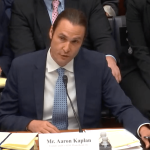Ron Levine/Getty Images
- The owner of Rush Bowls said he was losing sleep over shortages of kale, packaging, and equipment.
- Deliveries of new equipment, like freezers, now take months, Andrew Pudalov said.
- Some of his franchisees have raised menu prices to offset the rising costs.
- See more stories on Insider’s business page.
The owner of a smoothie-bowl company has said he stays up at night worrying about the supply-chain crisis.
Rush Bowls’ Andrew Pudalov told Insider his business was experiencing supply problems “on almost every level,” from food to packaging and equipment.
Pudalov said that prices had risen “significantly,” leading some of his franchisees to raise their menu prices, too.
“I have major concerns about the supply lines in general,” he said.
“I don’t see that going away for quite a bit,” he added that he was worried the problems would continue into early 2022.
Rush Bowls, which has more than 30 stores across the US, makes smoothie bowls using fruit, vegetables, and a variety of extra toppings and fillings like granola, seeds, and nuts.
The fruit served on the top of the bowls is fresh, but the fruit used for the smoothies themselves is flash-frozen, which preserves its nutrition while stopping it from spoiling.
Pudalov said that suppliers had stockpiles of flash-frozen fruit, but that there were shortages of fresh products like kale.
A lot of the problems stemmed from suppliers being unable to transport ingredients amid the trucker shortage, he said.
“I don’t think it’s a particular food group per se,” Pudalov said. “I think it’s just getting the product from point A to point B.”
Other restaurants have reported problems sourcing ingredients like chicken wings, burger patties, and even pineapple juice.
Island Fin Poké told Insider it had had to switch to masago containing gluten after its suppliers ran out of gluten-free masago, while Marco’s Pizza said that changing food prices had become “daily discussions” for its executive team.
Pudalov said that the availability and cost of packaging, including straws, spoons, compostable cups, and recyclable bowls, had also been heavily hit by shortages.
He said that Rush Bowls sourced its packaging mainly from US suppliers, but that they had become swamped with orders after other American companies switched from international suppliers because shipping problems made it harder to import from overseas.
Even getting equipment for his stores has become more difficult, he said, adding that freezers took months rather than weeks to be delivered because most of them were imported from overseas. In the past, it would arrive within weeks, he said.
Pudalov has encouraged his franchisees to raise prices to offset rising costs. Some had already lifted theirs by between 5% and 10%, he said.
“Depending if things calm down or not, that’s going to have to continue,” he said.
Other restaurants have raised their prices or cut their opening hours because of food shortages.
A pizzeria owner in New Jersey raised menu prices for chicken wings by more than 50%, while a restaurant owner in Maine, Jennie Mitchell, told Insider in July that ingredients shortages were forcing her to close an hour early every day, and for an extra day each week.
Rush Bowls’ Pudalov referred to recent comments made by Tyson Foods CEO Donnie King, who said that “costs are hitting us faster than we can get pricing at this point.”
“I’m really very concerned about it,” Pudalov told Insider. “It keeps me up at night.”
Powered by WPeMatico





